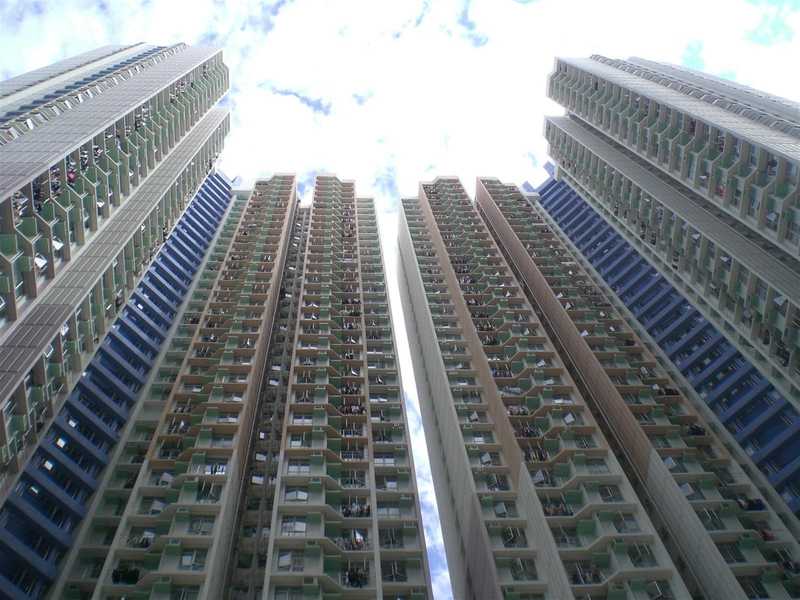MANAGING THE COMMON AREAS IN APARTMENT BUILDINGS –THE CURRENT LEGAL TURMOILS


The common area management of multi apartment buildings and gated communities is the exclusive domain of the Home Owners Associations. Its function, vary from that of a Regulator to a Mediator and at times as an Adjudicator. The Home Owners Associations may find it difficult to discharge its functions, without a suitable legal backing, since its members are better placed in the equation, with undivided interest in the common properties. This article discusses the legal turmoil, in the local laws regarding the common property management.
This article has a Kerala focus, but local law discussed here has a overseas origin and is universal in application[i].
An ineffective ‘local law’[ii]
The local law for Kerala is the Apartment Ownership Act 1983. The law is still-born, for the powers of the Competent Authority is missing. It can be deduced that the ill fate of the law, was because of a mindless copy from Maharashtra. In Maharashtra, the Registrar of Co-operative Societies is the Competent Authority, and his powers are defined elsewhere. He is practically a Regulator for all types of real estate projects, having the power even to order execution of deemed conveyances[iii].
The provision in the local law ‘Application of the Act’[iv] coupled with the lack of powers of the Competent Authority became a stumbling block, in its implementation. On the other hand Societies under the Societies Registration Act and Travancore Cochin Literary Scientific and Charitable Societies Act were formed, and common areas were handed over to them. These associations does not have any right over the common properties, when compared to its members. These ineffective associations, which does have any statutory backing or any legal right, either as owner or as possessor or manager, is ruling the common properties in the state.
The RERA ERA
RERA is almost a balanced legislation, because it does not favor either of the stakeholders, the Allottee or Promoter.
The Promoter is bound to enable the formation of the Association of Allottees[v], and convey the undivided proportionate title in the common areas to the Association of Allottees by executing and registering a conveyance deed[vi]. While the Allottees, have to participate towards the formation of the association.[vii]
It is generally perceived that the mandate to convey the proportionate title of common areas to the Association of Allottees, shifts the power equation, unfairly. RERA however respect the local laws, when it comes to the formation of the Association or in the matter of conveying the common areas to the association[viii].
Under the local law[ix], there is no such mandate to convey proportionate tittle of common areas to the Association. It recognizes that the function of the Association, is just to manage the common properties, in accordance with the bylaws[x]. Here the apartment owner is treated fairly, by permitting him to retain the undivided right over the common properties, without narrowing the powers of the home owners association.
The Illness and its Cure
The local law will apply only if the sole owner or all the owners submit the property to the provisions of the Act[xi]. The submission is through the execution and registration of a declaration.[xii] This requirement of ‘the sole owner or all the owners’ to act, is the source of the illness.
Who is the ‘sole owner’ and who could be ‘all the owners’? The ‘sole owner’, may be builder or his joint venture partner, who owns the project property. The promoter or his joint venture partner may execute and register a single declaration and make the local law applicable. If the ‘sole owner’ fails, and he transfers the undivided right over to the common properties to the apartment owner, on completion of the project, then ‘all the owners’ may have to act to make the local law applicable. The consequence that follows is that even the Association could be formed only after all the apartment owners, make the declaration. Since, the Competent Authority’s powers are not defined, he cannot compel any of the stakeholders to act, in case of their default.
Intention behind the local law
A closer reading of the local law would reveal the intention its intention. The formation of the association, would be complete when the sole owner or any of the owners make the declaration. The form of declaration prescribed would speak volumes, to support this argument. The contents of the declaration can be the one and the same, even when it is declared by the sole owner or any of the owners. Therefore, the formation of the Association would be complete by filing of the declaration, made either by the sole owner or any of the owners. The scheme of the law also emphasizes, that it is for the Association, to forward the declarations and deed of apartments of the apartment owners for registration.
This intention of the local law can be read from the preamble[xiii] and the Statement of Object and Reasons. The formation of the home owners association and to enable he apartment owners to enjoy exclusive ownership are its primary functions. As discussed, the execution and registration of the declaration and deed of apartment, are prerequisites for the application of the law and for the apartment owner to enjoy exclusive ownership of the individual apartments[xiv].
When the law is intended for the efficient management of the common property and to enable the apartment owner to enjoy exclusive ownership, its application cannot be left to the discretion of the promoter, or the other apartment owners. A proper interpretation of the provision, could lead to the undeniable conclusion that even the registration of the single declaration by an apartment owner would be sufficient for the application of the law.
Constitutional Challenge Against the local law.
The Kerala High Court has admitted a constitutional challenge, in Kent Mahal and another vs State of Kerala[xv]. The High Court has passed an interim order[xvi], prima facie accepting the contention of the Writ Petitioners that the application of the law does not require all the apartment owners to execute and register declaration. Hence directions were issued to the Competent Authority, to issue registration certificate to the Home Owners Association, without insisting for all the apartment owners to made the declarations.
Conclusion:
The scheme of the local law, clearly indicates that the association could be formed by the execution and registration of a single declaration. It is for the Association to ensure that all the Apartment Owners execute and register declaration and deed of apartments to secure the exclusive ownership and possession of apartment owners.
Either the Kerala High Court or the State Government, should step in, for dealing with legal turmoil caused by the provision regarding the ‘application of the law’.
Till then, let all the stakeholders wait.
[i][i] The local law for common area management is the Kerala Apartment Ownership Act 1983. It is almost a complete copy of the Maharashtra Apartment ownership Act 1970. The Maharashtra law may trace its origin from the America, for its provisions are identical to the model law formulated by the Federal Housing Association. When most of the states in USA have adopted the model law, the Indian states have copied the Maharashtra law.
[ii] Ref to Section 17 of the Real Estate (Regulation and Development) Act 2016
[iii] Ref to Section 11 of Maharashtra Ownership Flats Regulation of the promotion of Construction, Sale Management and Transfer) Act 1963
[iv] Section 2 of the Kerala Apartment Ownership Act 1983
[v] Section 11 (4) (e)of the RERA Act 2016
[vi] Section 11(4)(f) and Section 17 of the RERA Act 2016
[vii] Section 19(9) of the RERA Act 2016
[viii] Proviso to Section 11(4)€ and Section 17 (1) of the RERA Act 2016
[ix] Kerala Apartment Ownership Act
[x] Section 16(1) of the Kerala Apartment Ownership Act.
[xi] Section 2 of the Kerala Apartment Ownership Act 1983. Such a submission can be made by executing and registering a declaration.
[xii] Section 11 of the Kerala Apartment Ownership Act 1983.
[xiii] The Preamble of the Kerala Apartment Ownership Act 1983 “An Act to provide for the ownership of individual apartment in a building and to make such apartment heritable and transferable property.”
[xiv] Section 5 of the Kerala Apartment Ownership Act 1983.
[xv] WP © No. 21317 of 2021 admitted by the High Court of Kerala
[xvi]Order dated 6.07.2022 in WP © No. 21317 of 2021 passed by the High Court of Kerala.


